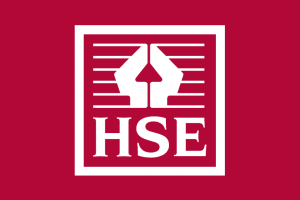Report says Co-op Bank crisis was ‘accident waiting to happen’

THE crisis and near collapse of the Co-op Bank scuppered hopes of creating a major challenger to the major high street banks, according to a key report from the Treasury Select Committee.
The findings of the influential committee’s long running inquiry into the demise of the so-called Project Verde deal – the attempted acquisition by the Co-op of 631 Lloyds bank branches – has just been published, and questions are raised over the bank’s structure, decision-making and the role of its auditor, KPMG.
Echoing the findings of the Co-op’s own internal review led by Sir Christopher Kelly, the committee queries the rationale of the Co-operative Bank’s merger with the Britannia Building Society in 2009, stating :”The commercial judgment behind the decision appears questionable”, while also highlighting the weaknesses in the bank’s governance and structure as it says: “By far the biggest responsibility [for the near collapse] lies with the Co-op Bank leadership.”
It describes the structure at the bank bluntly as “an accident waiting to happen”, adding: “The Co-op Bank’s governance structure up to the middle of 2013 was entirely inadequate for a bank of any size; it is shocking that it was in place in an institution that came so close to becoming a major new challenger bank.”
It has choice words about the bank’s colourful former chairman, the disgraced Rev Paul Flowers, whose personal life attracted a storm of publicity and led to a drug conviction.
The report says: “Mr Flowers lacked both the desirable experience and the minimum essential skills. He should not have put himself forward for the role.”
His appointment should not have been allowed by the former financial watchdog, the Financial Services Authority, it adds.
Interestingly, despite the claims of Lord Levine, who fronted a rival bid for the Lloyds assets, the committee rejected allegations of political meddling in the sale process.
Co-op pulled out of its bid in April 2013 just weeks before being downgraded by Moody’s and revealing it had a £1.5bn capital shortfall. The fall-out from the ensuing rescue meant the former owner Co-operative Group was left with only 20% of the bank.
The 127-page report, whi has 55 detailed recommendations in its conclusion, sets out questions for the two investigations to come – one by the accounting watchdog the Financial Reporting Council and an independent one commissioned by the chancellor, George Osborne.
The report questions the roles of the auditors, KPMG, stating: “The independent inquiry into events at Co-op Bank should look closely at the shortcomings of the bank’s auditor, KPMG.”
In a statement KPMG said: “We take our auditor responsibilities to the capital markets very seriously and will study the Treasury Select Committee (TSC) report in detail. Initially, we see that the TSC recommends that the Financial Reporting Council (FRC) should look at various aspects of the preparation, approval and audit of the financial statements of the Co-op Bank. The FRC has already announced an investigation into our audit and we’re co-operating fully.
“As the former auditor to the bank, we believe that we have provided robust audits which challenged the judgements and disclosures proposed by the bank’s management.
“As reported by the TSC, having conducted limited work, KPMG recommended further due diligence in relation to Britannia, which was performed by the Co-op Bank itself. KPMG was not responsible for guiding further due diligence undertaken by the Co-op Bank nor had a responsibility to scrutinise the results once complete. The scope of due diligence and the merits of a potential acquisition are matters for the board.”







